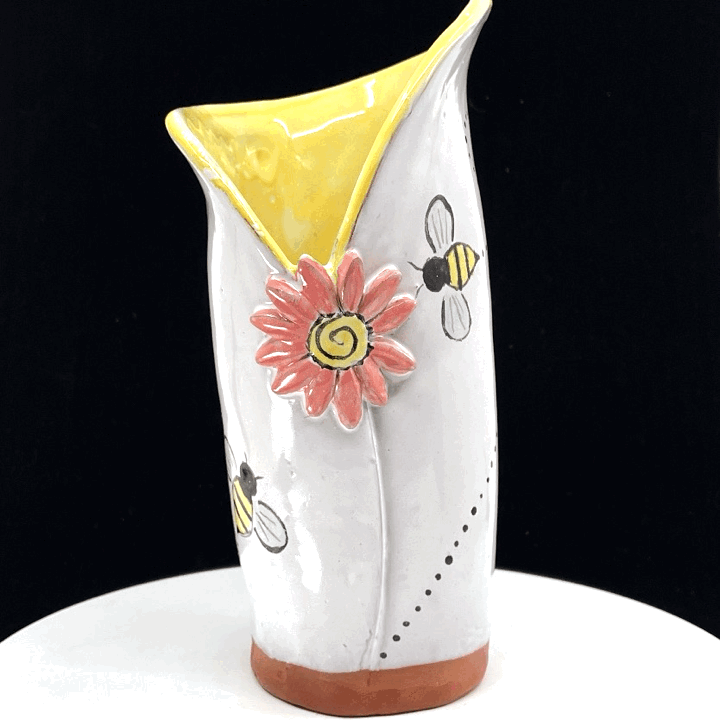 Image 1 of 3
Image 1 of 3

 Image 2 of 3
Image 2 of 3

 Image 3 of 3
Image 3 of 3




Bee Happy Vase
Add a touch of whimsy to your decor as a reminder to look on the bright side and not take everything so seriously. Busy bees flit around this handbuilt and handpainted vase, diligently performing their pollination duties. The bright yellow interior will showcase a bouquet of blooms from your garden. The undulating rim enables you to create a gorgeous display with flowers of different heights.
Height: 7-1/2”
Top Diameter: 4”
Bottom Diameter: 3”
Honeybees are responsible for pollinating over one-third of the food supply. But over the past 10 years, many beekeepers have reported the loss of their hives, commonly called Colony Collapse Disorder. Research is underway to determine the cause, which may be related to climate change, habitat loss and increased use of pesticides.
Add a touch of whimsy to your decor as a reminder to look on the bright side and not take everything so seriously. Busy bees flit around this handbuilt and handpainted vase, diligently performing their pollination duties. The bright yellow interior will showcase a bouquet of blooms from your garden. The undulating rim enables you to create a gorgeous display with flowers of different heights.
Height: 7-1/2”
Top Diameter: 4”
Bottom Diameter: 3”
Honeybees are responsible for pollinating over one-third of the food supply. But over the past 10 years, many beekeepers have reported the loss of their hives, commonly called Colony Collapse Disorder. Research is underway to determine the cause, which may be related to climate change, habitat loss and increased use of pesticides.
